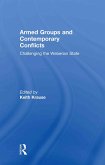One aspect of war is often overlooked: how much do they cost and how are they funded. Funding Extended Conflicts develops a baseline on Federal spending for the two extended conflicts of the Cold War era, Korea and Vietnam, and compares them with the global war on terror, including current outlays for Iraq and Afghanistan. It also provides wartime cases that offer recommendations on how to pay for future wars and focuses on the length of the tails of such spending, which are often omitted in the final analyses and distort funding estimates. Background chapters examine financing and budget issues as well as problems associated with defining the real cost of Korea, Vietnam, and the so-called long war against terrorism and are complemented by an assessment of the open-ended commitment to support homeland defense and conduct ongoing military operations in Southwest Asia. One aspect of war is often overlooked: how much do they cost and how are they funded. Funding Extended Conflicts develops a baseline on Federal spending for the two extended conflicts of the Cold War era, Korea and Vietnam, and compares them with the global war on terror, including current outlays for Iraq and Afghanistan. It also provides wartime cases that offer recommendations on how to pay for future wars and focuses on the length of the tails of such spending, which are often omitted in the final analyses and distort funding estimates. Background chapters examine financing and budget issues as well as problems associated with defining the real cost of Korea, Vietnam, and the so-called long war against terrorism and are complemented by an assessment of the open-ended commitment to support homeland defense and conduct ongoing military operations in Southwest Asia.
Hinweis: Dieser Artikel kann nur an eine deutsche Lieferadresse ausgeliefert werden.
Hinweis: Dieser Artikel kann nur an eine deutsche Lieferadresse ausgeliefert werden.








